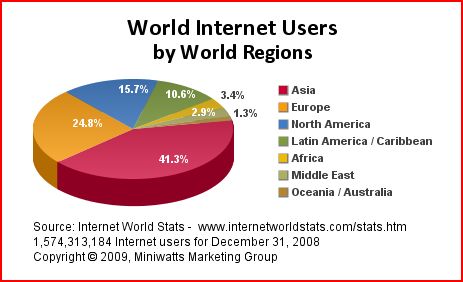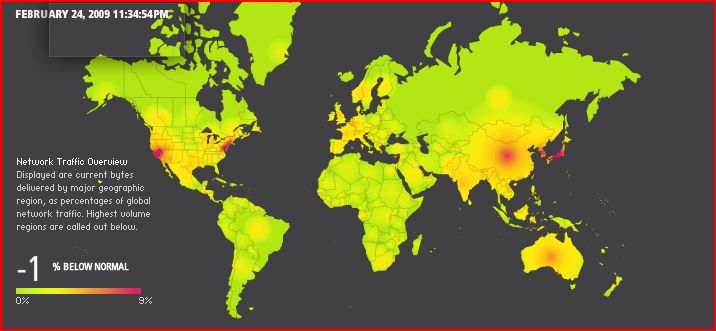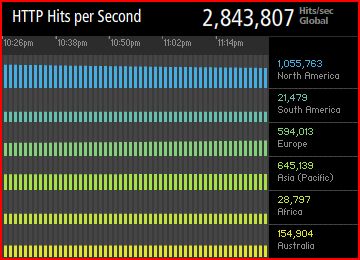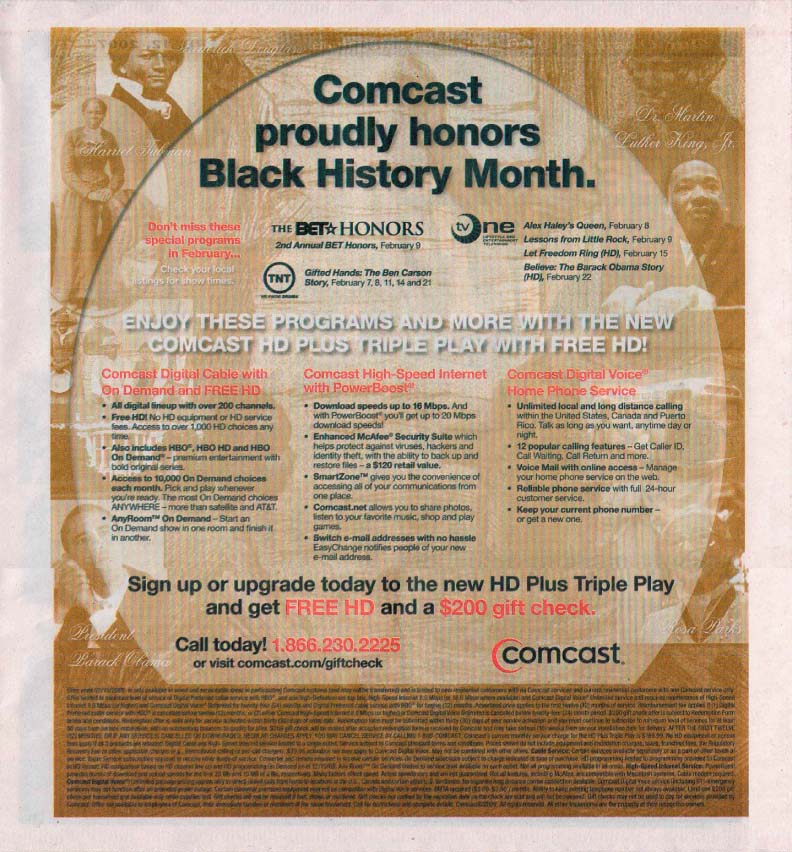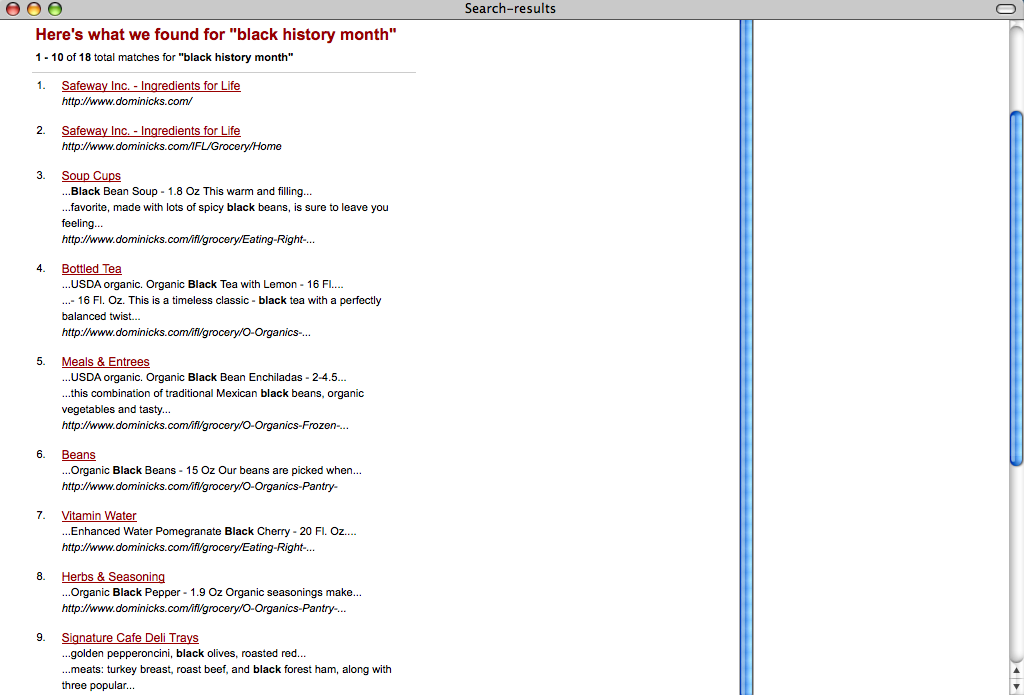Elizabeth C. sent in an English and Spanish version of a pamphlet for pregnant women from Kaiser. Here they are:
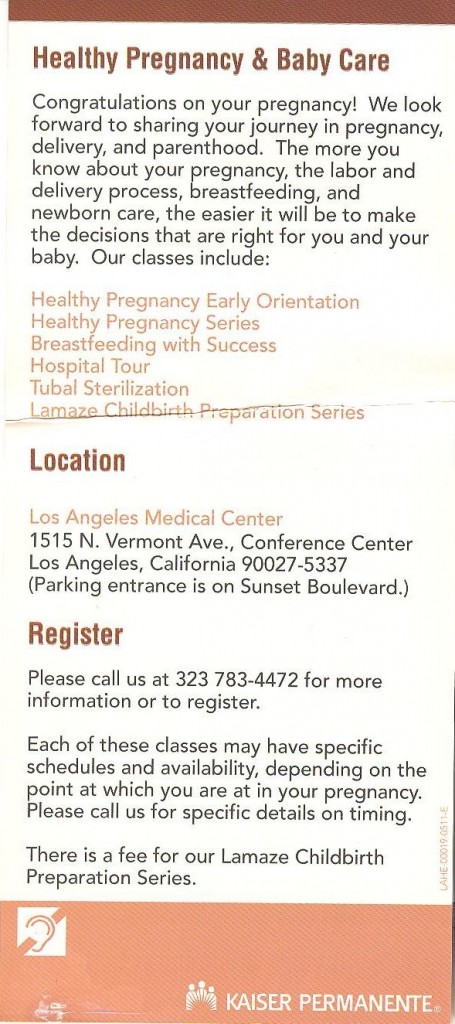
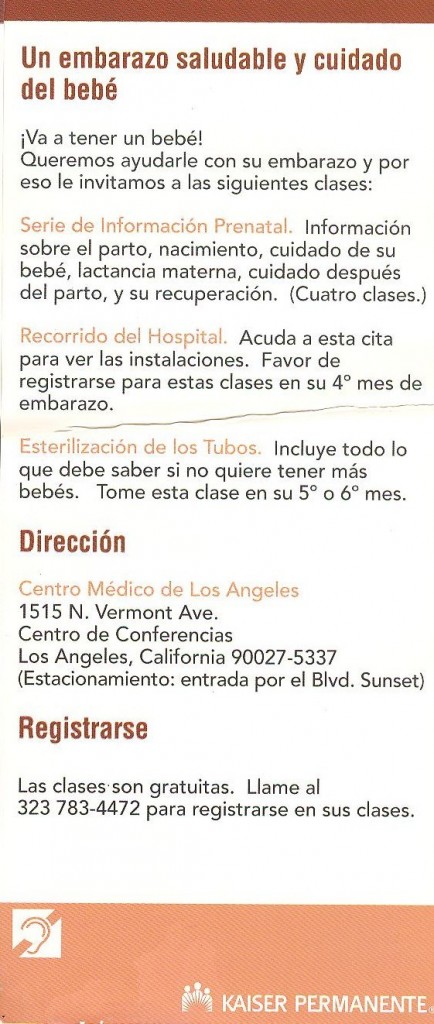
Translation (by member blogger Jeffrey):
A healthy pregnancy and care of your baby
You are going to have a baby!
We want to help you with your pregnancy, and therefore we invite you to the following classes:
1) Series of prenatal information. Information about labor, birth, and care for your baby, breast feeding, taking care of you after labor, and your recovery.
2) Take a look at the hospital. Make an appointment with us to see the facilities. Please register for these classes by the fourth month of your pregnancy.
3) Tubal sterilization. Includes all that you need to know if you do not want to have more children. Take this course by the fifth or sixth month of your pregnancy.
Notice the difference?
The English version of this pamphlet lists a series of options for pregnant women (“our classes include”), including Lamaze classes and classes on tubal sterilization.
The Spanish version says here are the three things we’d like you to do (“we invite you to”): prenatal info, hospital tour, and tubal sterilization.
In sociology, we call this targeted anti-natalism. Targeted anti-natalism is an effort to reduce the reproduction of certain populations and not others.
UPDATE! Socorro Serrano, representing Kaiser, posted a reply in our comments thread:
Greetings everyone: The initial posting on this topic is incorrect. Any suggestion that there was an intention to coerce Spanish-speaking women to take a tubal sterilization class is patently not true.
As bloggers Elena, Jaya, and Nora Ann have pointed out – This class is listed on both the English and Spanish flyers. And whether we say in English “Our classes include,” or in Spanish “le invitamos a las siguientes clases (we invite you to the following classes),” our goal is to provide information for a “Healthy Pregnancy & Baby Care,” or “Un embarazo saludable y cuidado del bebé.”
Also, please note that the hospital tour and free English and Spanish-language classes cover the same curriculum, including childbirth preparation (parto) and breast-feeding (lactancia materna). There has been no interest from Spanish-dominant parents for Lamaze classes, but if this changes, we would be happy to add this to our schedule of offerings.
Providing health care to our members in the language they prefer and in a manner that is respectful and culturally responsive is a core value for Kaiser Permanente. That is why your input and that of the communities we serve is so very important to us.


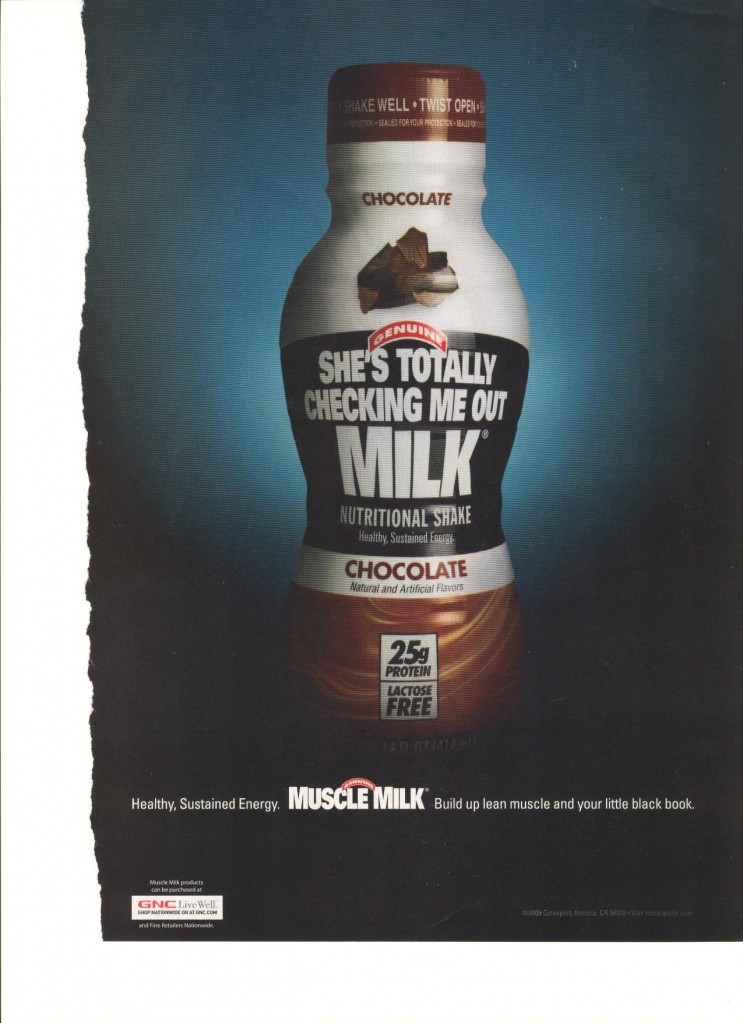 It’s fascinating that a magazine well-known for objectifying women also participates (at least in running this ad) in encouraging men to self-objectify. Without suggesting that women and men are equally objectified in American culture, I think it might be interesting to talk about the extent to which we live in an objectifying culture, period, and learn to self-objectify whether we are men or women.
It’s fascinating that a magazine well-known for objectifying women also participates (at least in running this ad) in encouraging men to self-objectify. Without suggesting that women and men are equally objectified in American culture, I think it might be interesting to talk about the extent to which we live in an objectifying culture, period, and learn to self-objectify whether we are men or women.
